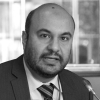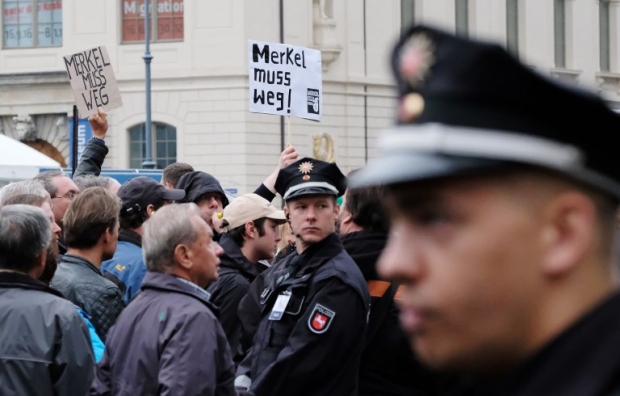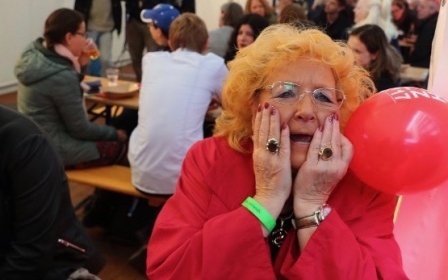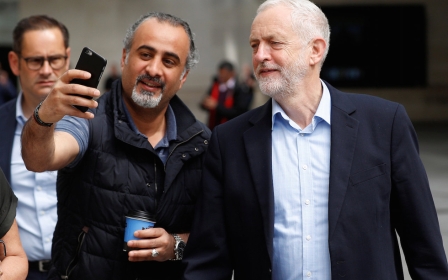Germany's extremist breakthrough: How to understand the victory of AfD
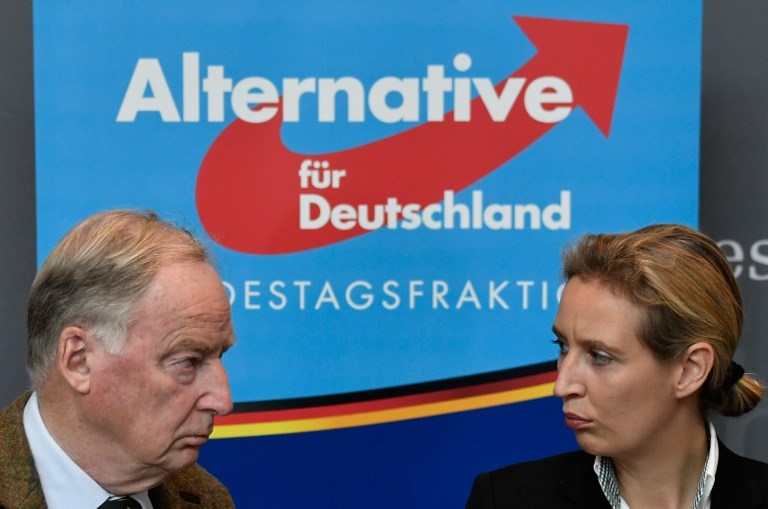
Several years ago, who could have ever imagined today’s scenario, and in Germany of all places? A new political party espousing a populist discourse with an extreme right-wing agenda sweeps into prominence, winning 94 seats in the Bundestag, the federal parliament.
The most important achievement by the so-called Alternative for Germany (AfD) is not limited to the fact that it is now the third force in the Bundestag. Rather, it is the success in shaping the German political scene in the image of its discourse, and qualifying the extreme right-wing to join the political mainstream.
In recent years, the extreme right-wing scene witnessed an important development. It was able to craftily reinvent itself, with new faces, and a different discourse
Over many decades, the federal republic had exercised a tolerant position towards the traditional extreme right-wing parties. The rationale being that allowing them to operate openly was safer than driving them underground.
Parties like the German Nationalist Party (NPD), and the Republicans (Die Republikaner) failed to prosper beyond the political fringe. They had to content themselves with a few seats in local parliaments in some states. These parties were ostracised by society, and kept under surveillance by the security services.
A different discourse
However, in recent years, the extreme right-wing scene witnessed an important development. It was able to craftily reinvent itself, with new faces, and a different discourse. Publicly, skinheads were no longer in evidence or occupying prime place. Moreover, traditional ultra-nationalist slogans were discarded. These were replaced by other no less extremist slogans, but ones that were cleverly crafted to exclusively target Muslims. The most prominent expressions of this transformation was the establishment of a populist movement, as well as a new political party.
The PEGIDA movement focused on indoctrinating German society with hate speech and inciting hostility towards Muslims. Since it was established in 2014, the movement has extended to other European countries. It is worth noting that PEGIDA's stronghold, Dresden, has no significant Muslim in population. Indeed, its key strongholds are situated in areas inhabited by very few Muslims compared to their general demographic distribution in Germany.
The indicators relating to this triumph of the extreme right represented by this party are hugely significant - especially if one looks to the states in the former communist East that joined the federal republic following the reunification of Germany. These states, where the party competed for the first place, are notable for the limited presence of Muslims compared to the western states.
Moreover, they are plagued by chronic socio-economic woes that are more prominent than elsewhere. This new extreme right-wing discourse, with a populist voice, exploited voter disaffection with the traditional parties, and the public’s discontent over economic and social imbalances. It continued to scapegoat Muslims as the cause of all these ills. The AfD took advantage of the developments in recent years, especially following the influx of refugees and the terrorist attacks carried out by Daesh.
The party proceeded to stoke fear, even naming Chancellor Angela Merkel as responsible for the bloody truck attack in Berlin in late 2016. The reasoning was that she had allowed refugees into the country.
Significant changes
This party, and other extreme right-wing forces, continues to exploit the general public's fears and alarm triggered by unprecedented changes occurring in Europe and the world.
Globalisation and the crises it triggered in the economic domain, as well as the movement of people across continents, refugee and migrant flows, adds to the feeling of cultural foreignness and loss in human societies that are becoming ever more diverse. All these significant changes have caused anxiety, provoking greater feelings of insecurity for the future.
It is clear to everyone that pandering to extremism is a profitable venture, and that populist positions are a guaranteed recipe for success
The generous result handed to the AfD was the fruit of years of agitation and incitement. The German man on the street had become desensitised through large-scale advertising in parks, streets, the media, and social media networks filled with denigration of Muslims. It was quite clear that the political actors from the various parties had been hugely negligent in confronting this extremist propaganda in its new form, irrespective of criticism by individuals reported here and there.
The political parties were busy trying to win over a public that was increasingly sympathetic to extremism. Indeed, these parties themselves committed to a certain level of rhetoric that was generally unfriendly towards Muslims. This was a case of the Christian Social Union (CSU), the Bavarian version of Merkel’s Christian Democrats (CDU).
In this way, the impact of the success of the extreme right-wing in the elections is much more pervasive. It is visible in the trend within the political scene leaning ever more towards the extreme right.
It is clear to everyone that pandering to extremism is a profitable venture, and that populist positions are a seemingly guaranteed recipe for success. These play to the public's alarm and fear, by presenting shallow slogans, divested of the values and principles enshrined in the Constitution.
Today, Germany, like other European countries, confronts a wave of political extremism espousing new slogans that are more insidious than those of the past.
Some traditional parties may opportunistically pursue the same slogans, seeking to improve their chances of electoral success. As such, they further embed the populist status quo, and normalise extremist discourse within the political space.
The challenge facing German political actors and civil society in the aftermath of these elections is how to isolate racist speech, and combat the populist fever that has invaded the scene, during and prior to the electoral campaign.
This now entrenched hate and divisiveness in society paints a horizon drawn from Germany's tragic past, and eclipses a progressive vision for a bright and inclusive future.
- Hossam Shaker is a researcher and author, consultant in media, public relations and mass communication for a number of organisations in Europe, and resides in Vienna. He has an interest in analysis of European and international affairs, as well as social and media issues.
The views expressed in this article belong to the author and do not necessarily reflect the editorial policy of Middle East Eye.
Photo: Alexander Gauland (L) and Alice Weidel, leadership members of Germany's hard-right Alternative for Germany (AfD) party, give a statement on the sidelines of a meeting of the AfD's parliamentary group at the Marie-Elisabeth-Lueders-Haus parliamentary building in Berlin on September 27, 2017, three days after general elections. [AFP]
Stay informed with MEE's newsletters
Sign up to get the latest alerts, insights and analysis, starting with Turkey Unpacked
Middle East Eye delivers independent and unrivalled coverage and analysis of the Middle East, North Africa and beyond. To learn more about republishing this content and the associated fees, please fill out this form. More about MEE can be found here.


